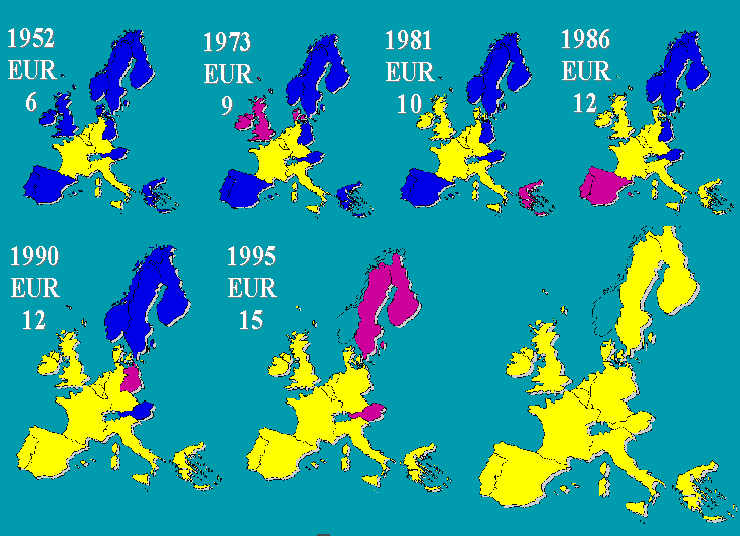
The European Integration |
The Origins of European Integration | |
| EU Institutions | ||
| The Decision Making Process | ||
| EU Policies: from A to Z | ||
| The EU in the World | ||
EU MembershipUnion membership is open to any European country with stable democratic government, a good human rights record, a properly functioning market economy, and the macroeconomic fitness to fulfil the obligations of membership. Candidates must have the capacity to fulfil and implement EU laws and regulations (known as the "acquis communautaire"). To date, four enlargements have taken place in the evolution of the European Union:

| ||